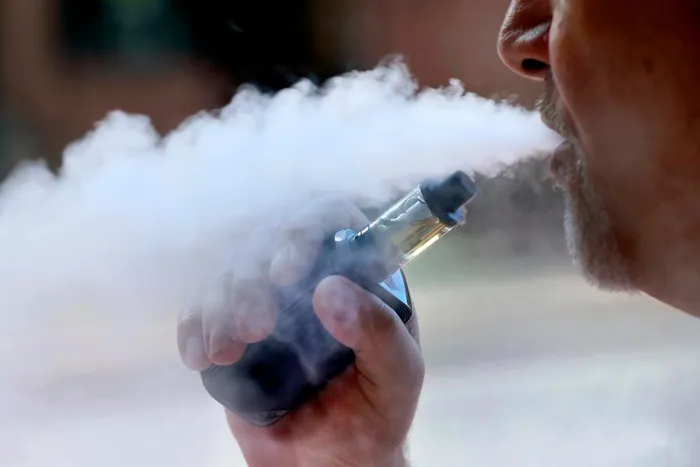
A new customs duty has been slapped on vaping liquid, which will result in higher prices.
Image: File image
A new customs duty has been slapped on vaping liquid, which will result in higher prices.
On Friday the South African Revenue Service (SARS) introduced important amendments to the Customs and Excise Act, 1964, aimed at tightening the regulation of electronic cigarettes and vaping products. These changes, reflected in amendments to Schedule No. 1 (Parts 1 and 2A) and Schedule No. 6 (Part 1E), include the insertion of new tariff subheadings, the introduction of an excise duty on vaping liquid, and the implementation of new rebate provisions for defective or exported products.
XA Global Trade Advisors explained that under the amended tariff structure, a new subheading, 8543.40.10, has been inserted to specifically classify vaping devices presented with vaping liquid, whether or not the liquid contains nicotine. The customs duty applicable to this subheading is currently set at free for imports under the general rate and under all listed trade agreements. However, while the customs duty is zero, SA Revenue Service (Sars) has introduced a new excise duty under Tariff Item 116.10.10, applicable to vaping liquid contained within such devices. A rate of R3.18 per millilitre now applies, making it critical for importers and manufacturers to recalculate their pricing structures accordingly.
To ensure clarity regarding how this duty applies, Note 5 was inserted into Section A of Part 2A of Schedule No. 1. This note explicitly states that the rate of excise duty listed (R3.18/ml) is only applicable to the liquid component of the vaping device, not the hardware itself. These changes collectively ensure that vaping devices with prefilled liquid are clearly classified and taxed in line with existing excise policies for tobacco and substitute products.
XA Global Trade Advisors said in line with the above adjustments, Sars also introduced three new rebate provisions under Schedule No. 6: Rebate Items 622.24, 622.25, and 622.26. These items allow for full duty refunds on vaping devices that are returned due to manufacturing defects, post-manufacturing deterioration, or contamination, or where devices are exported directly from a licensed customs and excise warehouse.
To qualify, importers or manufacturers must meet several requirements, including ensuring that returned products are in sealed wholesale packaging, accompanied by a credit note, and returned within 12 months of removal from the warehouse. Furthermore, any reprocessing or destruction of returned products must occur under Sars supervision, with accurate records maintained throughout.
XA Global Trade Advisors said these regulatory changes reflect Sars’s commitment to stricter excise compliance in the vaping sector and signal an alignment with the treatment of traditional tobacco products. Businesses dealing in electronic vaping devices, particularly those importing prefilled or disposable units, must ensure that they are properly licensed, registered under the correct rebate provisions, and compliant with the administrative requirements set out in the latest amendments.
According to Statista, in South Africa, the revenue in the e-cigarettes market is projected to reach $690.4 million (R12.3 billion) in 2025. This market is expected to experience an annual growth rate of 2.44% (CAGR 2025-2030).